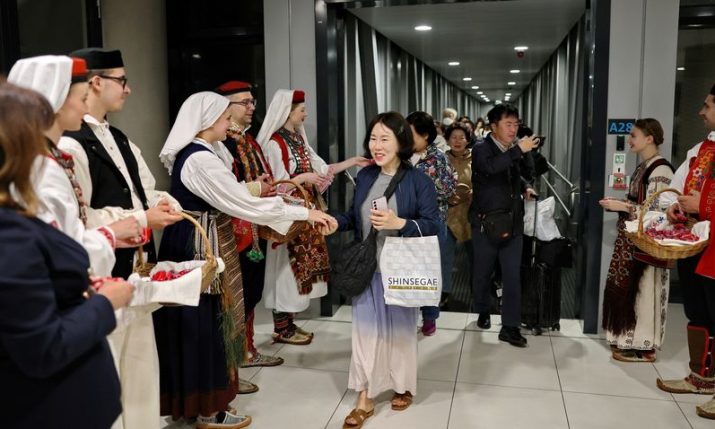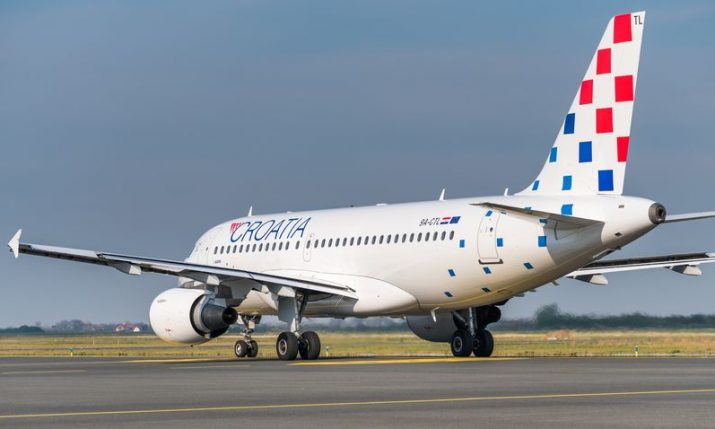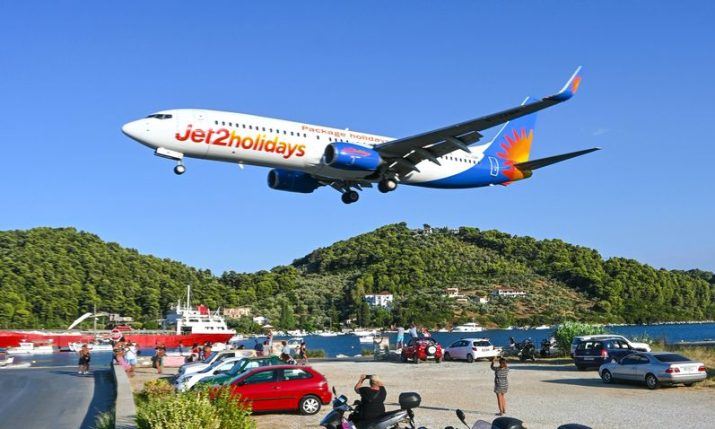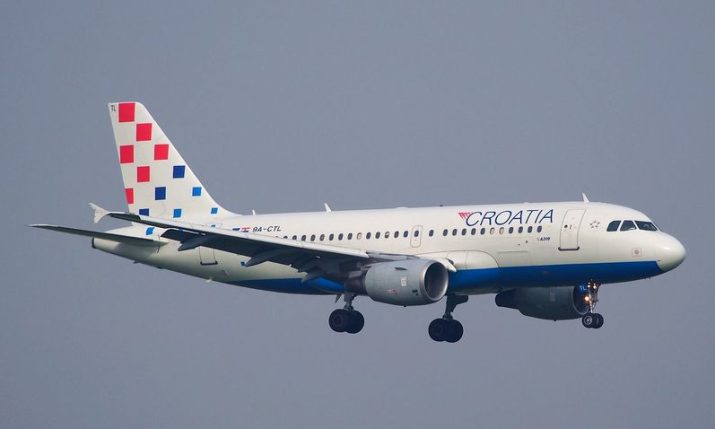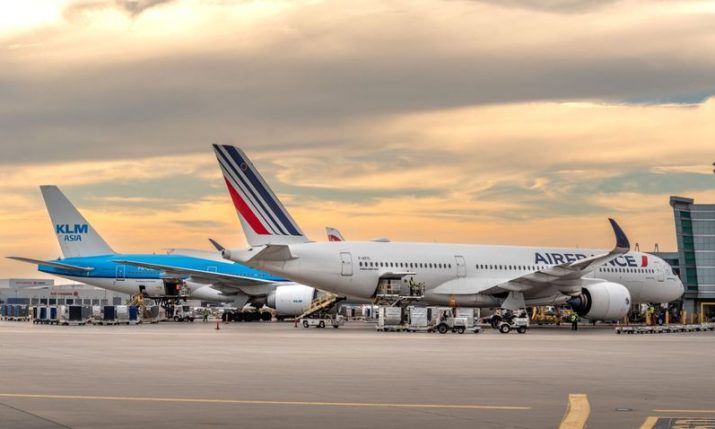KLM celebrates tenth anniversary of the Zagreb-Amsterdam flight
- by croatiaweek
- in News
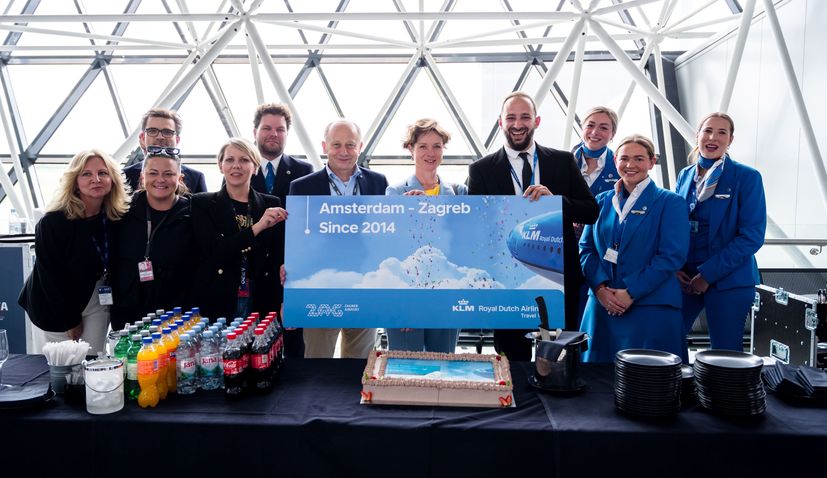
(Photo: KLM)
At Zagreb’s Franjo Tuđman Airport, the tenth anniversary since the establishment of the flight to one of the most important European air hubs and one of the busiest airports in Europe – Amsterdam, was celebrated. The first flight was operated on April 26, 2014, with Embraer 190 aircraft offering 100 seats.
The Zagreb – Amsterdam route is significant because it has provided excellent connectivity between Croatia and the Netherlands as well as southern and northern Europe, facilitating travel for businesspeople, tourists, and travel enthusiasts.
KLM operates between Zagreb and Amsterdam with one of today’s most modern aircraft, the Embraer 195-E2, with a capacity of 132 seats, which consumes 9% less fuel and emits 31% less carbon dioxide compared to older generation aircraft.
The E195-E2 aircraft is also 48% quieter than the classic E190. Since the establishment of the flight to Amsterdam ten years ago, KLM has systematically developed the Zagreb-Amsterdam route and now operates two flights daily between the two cities, every day of the year.
At the ceremony at Zagreb Airport, Gojko Mavrinac, KLM Station Manager stated: “Today, with joy and pride, we celebrate the tenth anniversary of the first Zagreb-Amsterdam flight. Despite all the challenges that have affected the aviation sector over the past years, including the extraordinary circumstances caused by the pandemic, KLM has never ceased flights to European destinations, including Amsterdam, enabling better connectivity between Croatia and the region with the Netherlands and the rest of the world.”
Nicolas Duthilleul, Chief Operations Officer and board member of MZLZ, stated: “We sincerely congratulate KLM, our significant partner, on celebrating the tenth anniversary of flights to Zagreb. We would like to highlight that during this period, KLM has made a significant contribution to connecting Zagreb with numerous destinations around the world and to the good traffic results of the airport. We look forward to continuing our successful collaboration and celebrating new anniversaries in the future.”
On the 10th anniversary of the first flight on the Zagreb-Amsterdam route, in order to thank passengers for their trust so far, KLM rewarded all 100 passengers on that route on Friday afternoon with appropriate gifts that symbolize the Netherlands, and members of the Flying Blue program who will travel on the ZAG-AMS route on the anniversary day, April 27th, with 5 times more miles.
In addition to Zagreb, KLM also flies to Split and Dubrovnik. In the pre-season, until June 29, it flies once daily to Amsterdam, and from June 30 to August 25, 2024, it flies three times daily. For Dubrovnik, from April 6 to June 28, 2024, KLM flies once a week, and after June 29, 2024, every day.
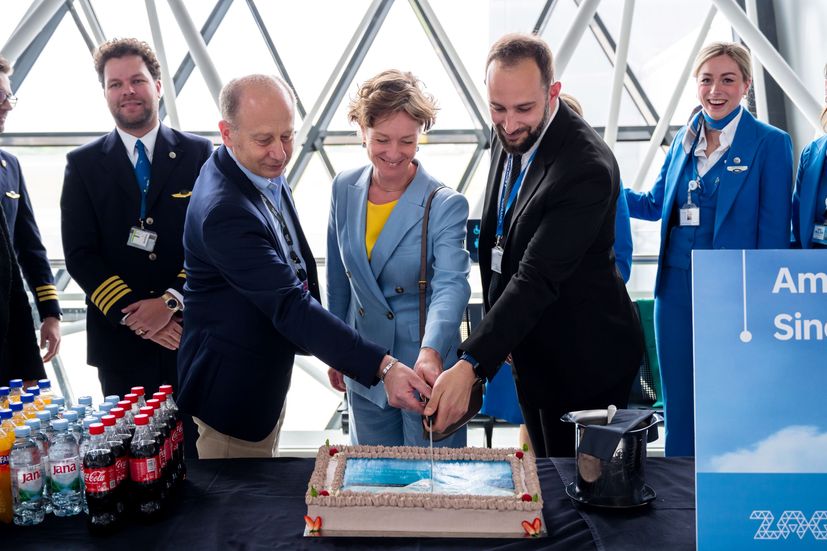
(Photo: KLM)
Thanks to the adapted time schedule of the daily frequencies, travelers will take advantage of the extensive KLM network of 160 European and long-haul destinations via the efficient, user-friendly Amsterdam Schiphol Airport. Schiphol is regularly ranked by travelers as one of the easiest and best-structured connecting airports in the world, thanks to the unique one terminal concept allowing connection times of 40 minutes.
About Air France-KLM
A global player with a strong European base, the Air France-KLM Group’s main areas of business are passenger transport, cargo transport and aeronautical maintenance. Air France-KLM is a leading airline Group in terms of international traffic on departure from Europe.
It offers its customers access to a worldwide network, covering over 310 destinations thanks to Air France, KLM Royal Dutch Airlines and Transavia, mainly from its hubs at Paris-Charles de Gaulle and Amsterdam-Schiphol. Its Flying Blue frequent flyer programme is one of the leaders in Europe with over 17 million members.
Together with its partners Delta Air Lines and Virgin Atlantic, Air France-KLM operates the largest transatlantic joint venture, with more than 340 daily flights in 2019.
Air France-KLM is also a member of the SkyTeam, the alliance dedicated to providing passengers with a more seamless travel experience at every step of their journey 18 member airlines working together across an extensive global network.
Recognized for 18 years as an industry leader in sustainable development, the Air France-KLM Group is determined to accelerate the transition to more sustainable aviation. Since 2003, the Air France-KLM Group has been a member of the United Nations Global Compact. The aim is to make a significant contribution to the UN Sustainable Development Goals in connection with the Group’s activities.
Destination Sustainability
Air France-KLM is committed to environmental and social responsibility for many years, with all of the Group’s commitments falling under its “Destination Sustainability” strategy. This strategy is founded on two major pillars: “people & culture” and “environment”.
The Air France-KLM Group is a responsible company that cares for people and cultures by investing in noise pollution reduction, creating a safe and inclusive workplace, and supporting local communities.
The Air France-KLM Group has developed a decarbonization strategy to reduce its emissions per passenger kilometer by 30% in 2030, compared to 2019. To achieve this target, Air France-KLM is activating all decarbonization levers at its disposal, including:
Fleet renewal: Air France-KLM is investing in new-generation aircraft, such as the Airbus A220 and Airbus A350, which are more fuel-efficient and produce up to 25% less CO2 emissions, and with a noise level reduction of 33% on average. By 2028, these aircraft will account for 64% of the Air France-KLM Group fleet, thanks to an investment of two billion euros a year.
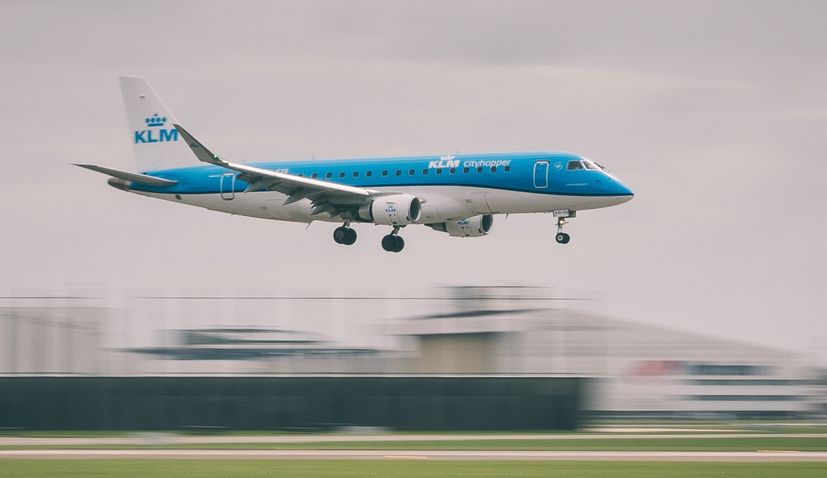
KLM
Sustainable Aviation Fuel (SAF): Air France-KLM is increasing its use of SAF, selecting projects which reduce CO2 emissions by at least 75% over the full life cycle, and which do not compete with the food chain. By 2030, the Group aims to incorporate at least 10% SAF in its operation, and 63% by 2050.
Operational measures: Including ground operations and eco-piloting measures, these initiatives, made possible by the action of Air France-KLM crews and ground staff trained in these practices, enable an average reduction of 4 to 5% in CO2 emissions.
Link to the Destination Sustainability website: https://sustainabilityreport.airfranceklm.com/
Sustainable aviation fuel, a key lever for reducing the environmental impact of the airline industry
Air France-KLM’s objective is to reduce its total CO₂ emissions per passenger/km by 30% compared with 2019. To achieve this goal approved by the Science Based Targets initiative, the Group aims to incorporate 10% sustainable aviation fuel (SAF) by 2030, beyond the European mandate of 5% for flights departing Europe by the same deadline.
Sustainable aviation fuel is one of the most promising levers for reducing CO₂ emissions from aviation. It is currently made from used cooking oils, waste or agricultural and forestry residues. In the future, sustainable synthetic aviation fuel will also be available, made from hydrogen and carbon captured from the atmosphere.
Air France-KLM has implemented a strict sourcing policy and is committed to purchasing only SAF that does not compete with food or feed, are RSB or ISCC+ certified for their sustainability, and is not produced from palm oil. For this reason, SAF purchased by Air France-KLM can reduce CO₂ emissions by an average of 75% compared with conventional fuel over its full lifecycle, and also requires no engine modifications.
SAF Corporate Programme
Air France-KLM’s “Sustainable Aviation Fuel Corporate” program aims to support companies wishing to contribute to the decarbonization of air transport, stimulate the development of the SAF market and, more generally, reduce the carbon footprint of the aviation sector.
Thanks to the SAF Corporate program and once they’ve measured the CO₂ emissions linked to their travel needs, the Air France-KLM Group’s corporate customers can determine the annual contribution they wish to make. The Air France-KLM Group then invests all contributions into the purchase and use of sustainable aviation fuel.
This stimulates demand for SAF and encourages the development of production facilities. By supporting this program, companies are taking concrete steps to reduce CO₂ emissions and contributing to the aviation industry’s transition.
